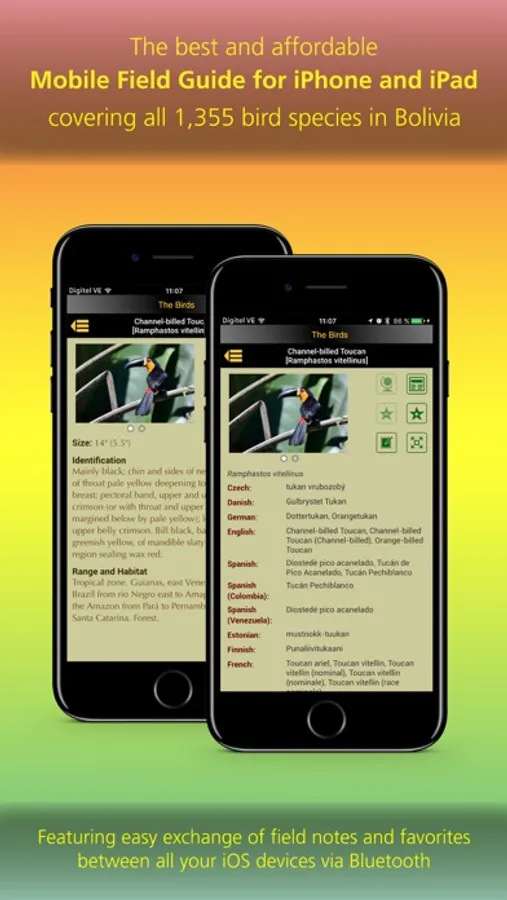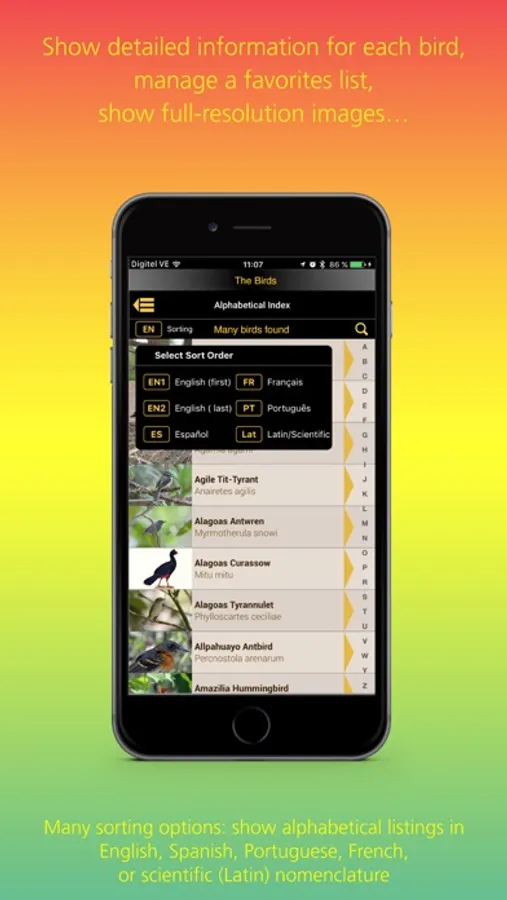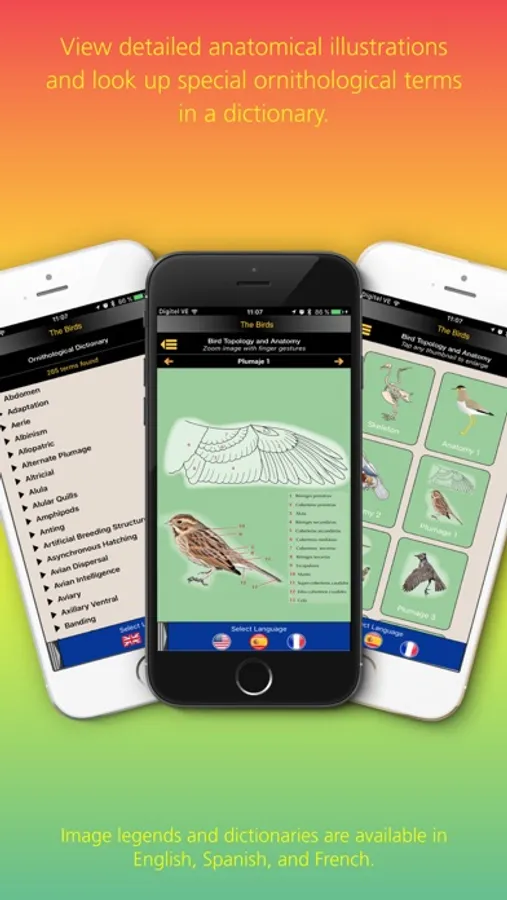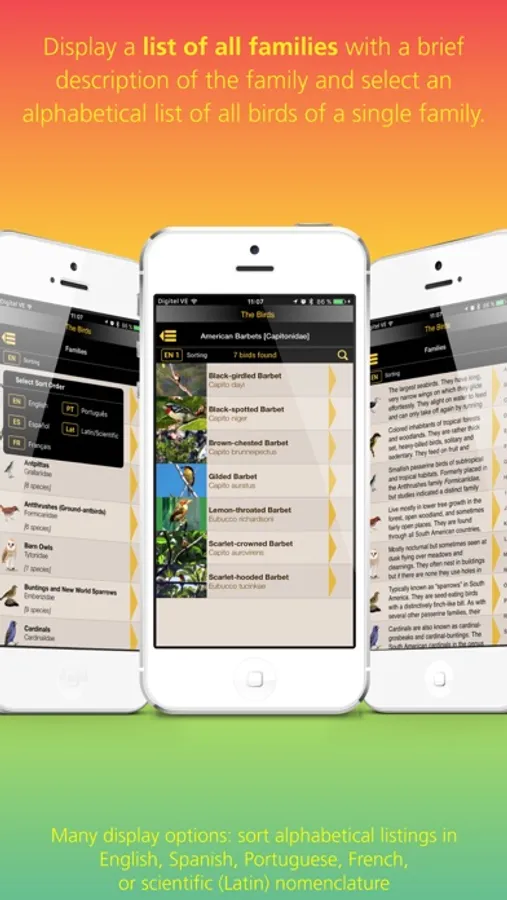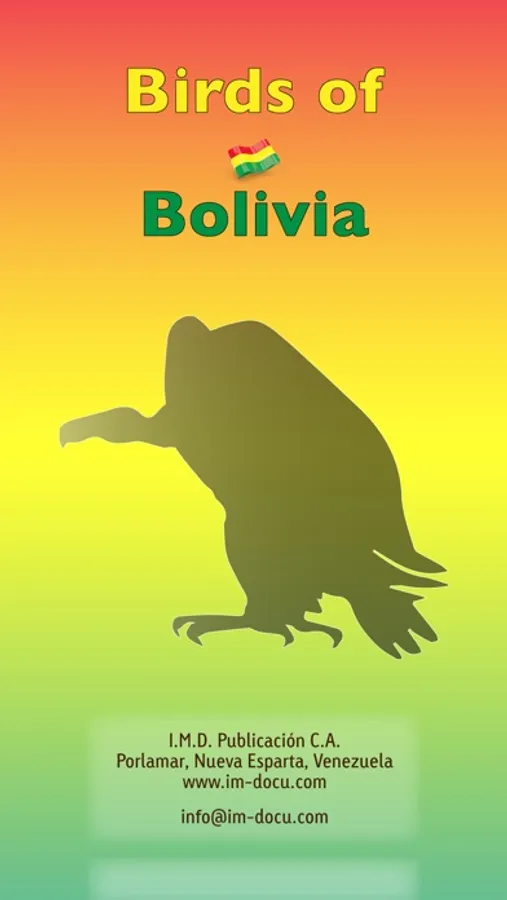About The Birds of Bolivia
In "The Birds of Bolivia" all species of birds regularly found in Bolivia are described, and their approximate size given in inches and tenths of inches. Females are not explicitly described if they resemble males.
A brief account of each family is given in the list of families. The range of each species is given, but often in much detail. In addition to the birds‘ geographical ranges, the altitudinal zones which they inhabit are given. The zones and their limits are:
• Tropical Zone:
sea level to 4500–5000 ft
(1,400 to 1,500 m)
• Subtropical Zone:
4500–5000 to 7500–8500 ft
(1,400–1,500 m to 2,300–2,600 m)
• Temperate Zone:
7500–8500 to 9500–11,500 ft
(2,300–2,600 m to 2,900–3,500 m)
• Páramo or Puna Zone:
9500–11,500 ft to snow line
(2,900–3,500 m)
The current app version contains the descriptions and images of all 1,350+ bird species found in Bolivia. Moreover, an ornithological dictionary (English, French, Spanish, Portuguese) and illustrations of bird anatomy are included.
Apart from using the optional backup and restore functions for Field Notes and Favorites, the app runs completely offline and there is no need for an internet connection during usage in the field.
As with "The Birds of South America", which contains more than 3,000 birds found on the entire continent, also "The Birds of Bolivia" runs on any iOS device and can exchange Field Notes and Favorites lists between identical versions on two or more devices via Bluetooth.
A brief account of each family is given in the list of families. The range of each species is given, but often in much detail. In addition to the birds‘ geographical ranges, the altitudinal zones which they inhabit are given. The zones and their limits are:
• Tropical Zone:
sea level to 4500–5000 ft
(1,400 to 1,500 m)
• Subtropical Zone:
4500–5000 to 7500–8500 ft
(1,400–1,500 m to 2,300–2,600 m)
• Temperate Zone:
7500–8500 to 9500–11,500 ft
(2,300–2,600 m to 2,900–3,500 m)
• Páramo or Puna Zone:
9500–11,500 ft to snow line
(2,900–3,500 m)
The current app version contains the descriptions and images of all 1,350+ bird species found in Bolivia. Moreover, an ornithological dictionary (English, French, Spanish, Portuguese) and illustrations of bird anatomy are included.
Apart from using the optional backup and restore functions for Field Notes and Favorites, the app runs completely offline and there is no need for an internet connection during usage in the field.
As with "The Birds of South America", which contains more than 3,000 birds found on the entire continent, also "The Birds of Bolivia" runs on any iOS device and can exchange Field Notes and Favorites lists between identical versions on two or more devices via Bluetooth.
